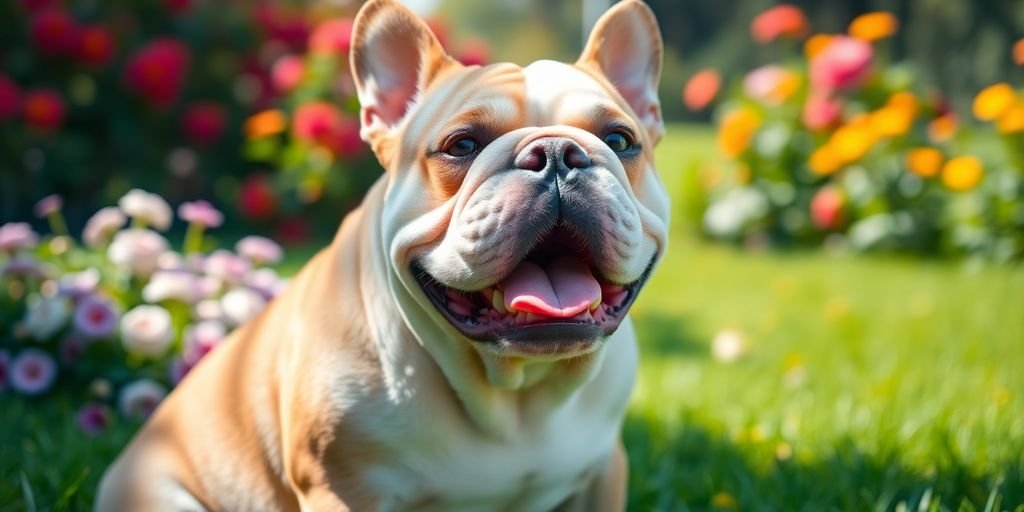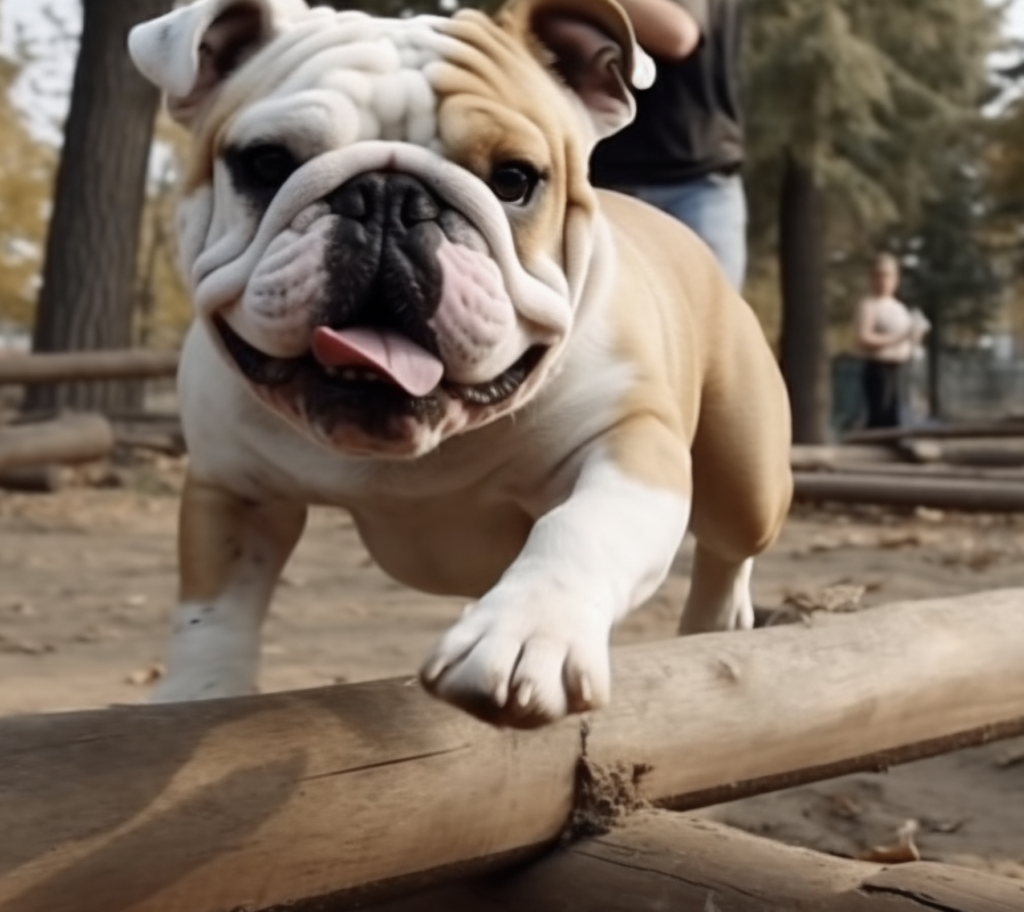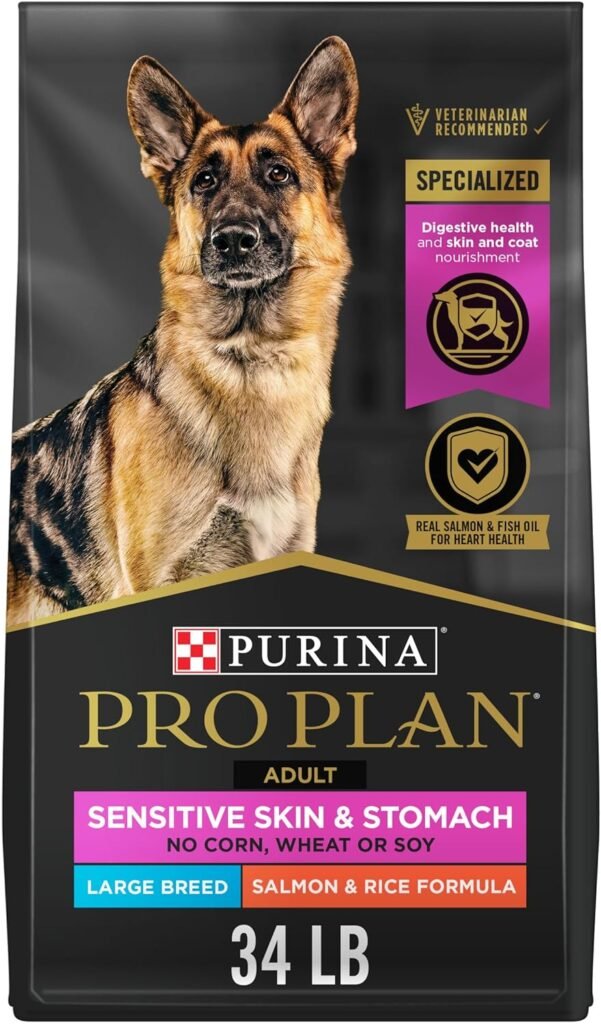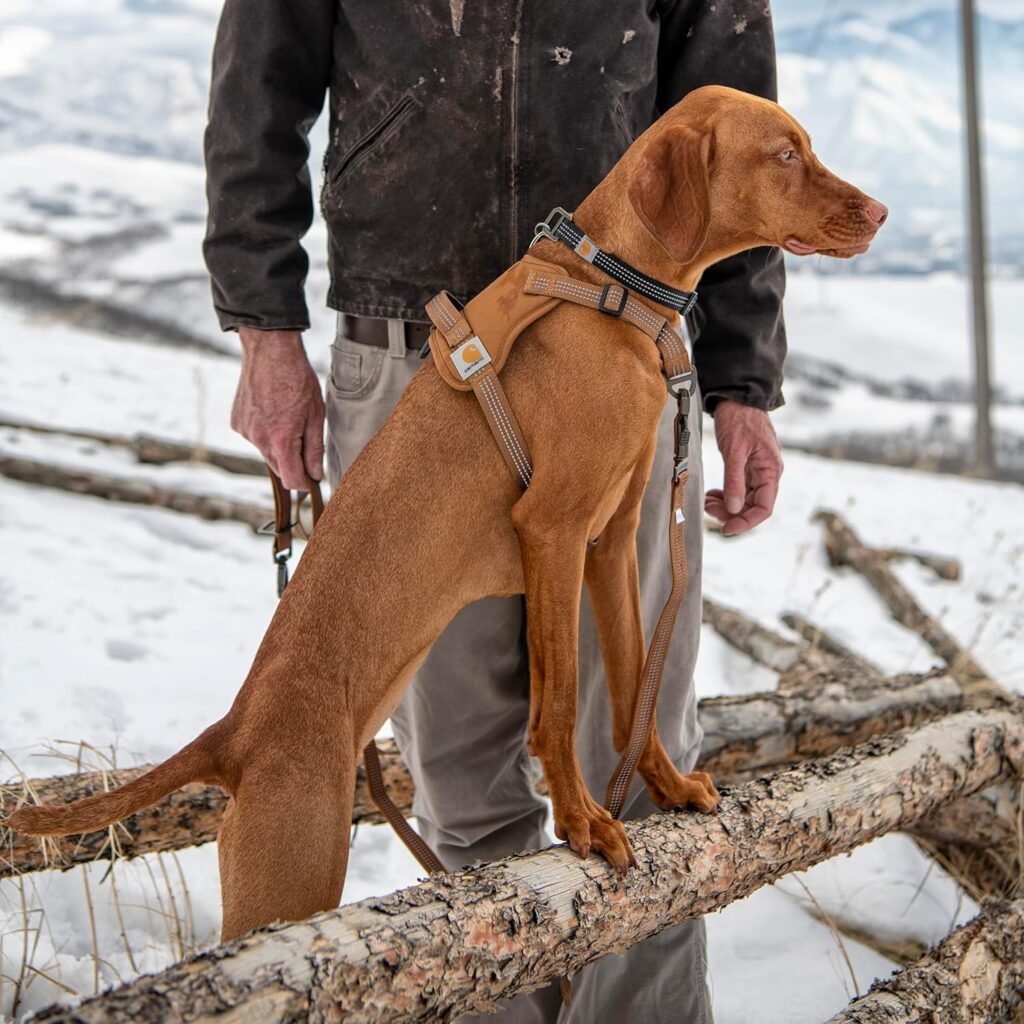
So, you’ve got a bulldog, or maybe you’re thinking of getting one. Either way, you’re in for a treat. Bulldogs are unique, with their own set of quirks and needs. This guide is all about helping you keep your bulldog healthy and happy. From understanding common health issues to feeding them right, and even how to make your home bulldog-friendly, we’ve got you covered. Let’s dive into the world of bulldog health and make sure your furry friend is living their best life.
Key Takeaways
- Bulldogs need regular vet check-ups to catch health issues early.
- A balanced diet with the right nutrients is essential for bulldog health.
- Exercise is important, but be mindful of overexertion due to their build.
- Proper grooming, especially skin care, helps prevent infections.
- Understanding their temperament aids in better training and bonding.
Understanding Bulldog Health Essentials
Common Health Issues in Bulldogs
Bulldogs, with their adorable wrinkled faces and stocky bodies, are prone to several health issues. Brachycephalic obstructive airway syndrome (BOAS) is a major concern due to their short snouts, causing breathing difficulties. They may also suffer from hip dysplasia, a genetic condition affecting the hip joints. Obesity is another issue; Bulldogs love to eat and are not always keen on exercise, making weight management crucial. Regular check-ups can help catch these problems early.
Preventive Health Measures
To keep your Bulldog healthy, it’s essential to adopt preventive measures. Start with a balanced diet tailored to their needs, and ensure they get moderate exercise. Regular grooming is vital, especially cleaning their skin folds to prevent infections. Consider essential health tips for American Bulldogs like brushing their coat weekly and scheduling regular vet checkups. These steps can help avoid common health problems and improve their quality of life.
Importance of Regular Vet Visits
Regular vet visits are a must for Bulldogs. These appointments are not just for vaccinations; they’re crucial for monitoring your dog’s overall health. Vets can spot early signs of issues like BOAS or hip dysplasia and suggest treatments or lifestyle changes. They can also advise on the best diet and exercise plans to keep your Bulldog in top shape.
Bulldogs may require more medical attention than other breeds, but with the right care and regular vet visits, they can lead happy, healthy lives. Remember, a proactive approach to health can make all the difference for your Bulldog.
Nutrition and Diet for Bulldogs
Choosing the Right Food for Bulldogs
When it comes to feeding your Bulldog, picking the right food is crucial. Bulldogs often have sensitive digestive systems, so it’s important to select dog foods with easily digestible ingredients like rice, oatmeal, or sweet potatoes. Be cautious of certain dog foods that might cause digestive issues. For English Bulldogs, it’s essential to find foods that cater to their specific needs. Some brands even offer breed-specific formulas that support joint and skin health.

Feeding Guidelines and Schedules
Feeding your Bulldog properly involves more than just picking the right food. Adult Bulldogs should be fed twice a day, once in the morning and once in the evening. Puppies, on the other hand, need to eat more frequently—about three to four times daily. To prevent your Bulldog from eating too quickly, which can lead to problems like regurgitation, consider using a slow feeder bowl or puzzle toys.
Supplements for Optimal Health
Supplements can play a significant role in maintaining your Bulldog’s health. Omega-3 fatty acids, found in fish oil, can be beneficial for their coat and skin. Joint supplements containing glucosamine are also recommended to support their joints. Probiotics and immune-boosting supplements can help Bulldogs with allergies or digestive issues. Always consult your vet to determine which supplements are appropriate for your Bulldog.
Exercise and Physical Activity Needs
Recommended Exercises for Bulldogs
Bulldogs are known for their laid-back nature, but they still need regular exercise to stay healthy. Unlike some high-energy breeds, Bulldogs don’t require extensive physical activity. Instead, focus on short, consistent walks to keep them fit. Aim for two 15-minute walks daily. It’s important to avoid overexertion, especially in hot weather, as Bulldogs can struggle with breathing issues due to their flat faces. Incorporate playtime with toys that stimulate their mind and body, like tug-of-war or fetch.
Managing Weight and Obesity
Bulldogs are prone to weight gain, so keeping an eye on their diet and activity level is crucial. Regular exercise helps manage their weight, but it’s also important to monitor their food intake. Consider using a slow feeder bowl to prevent them from eating too quickly, which can lead to weight gain. If your Bulldog is already overweight, gradually increase their activity level and consult your vet for tailored dietary advice.
Signs of Overexertion
Be mindful of signs that your Bulldog might be overdoing it. Look for excessive panting, drooling, or stumbling during exercise. Bulldogs are susceptible to heatstroke, so exercise them in cooler parts of the day. If you notice any signs of overexertion, stop the activity immediately and provide water and a cool place to rest. Always keep an eye on your Bulldog’s breathing, especially if they have known respiratory issues.
Bulldogs are charmingly lazy, but they still need a bit of daily exercise to keep their tails wagging and their hearts healthy. Keep it simple, keep it fun, and always keep an eye on their breathing.
For more insights on how to tailor activities to your Bulldog’s unique needs, consider checking out English Bulldogs require minimal exercise.

Grooming and Skin Care for Bulldogs
Daily Skin Care Routine
Bulldogs have unique skin folds that need some extra love. Daily care is key to keeping your pup comfortable and healthy. Start by gently wiping their wrinkles with a soft cloth or a dog-friendly wipe. Make sure you dry those folds well, as moisture can lead to skin infections. A simple routine like this helps prevent bacteria from setting up shop in those adorable wrinkles.
Bathing and Coat Maintenance
When it comes to baths, Bulldogs don’t need them too often. Once a week or every other week should do the trick. Use a gentle dog shampoo, paying special attention to the folds and tail area. After the bath, make sure to dry them thoroughly. Brushing once a week with a soft bristle brush helps keep their coat looking good and reduces shedding. For more tips on managing Bulldog shedding and grooming, check out expert tips.
Dealing with Allergies and Skin Infections
Bulldogs can be prone to allergies, which might lead to skin infections. If your Bulldog starts scratching more than usual or develops red patches, it might be time to visit the vet. They might recommend a special diet, medicated baths, or treatments to help manage allergies. Keeping an eye on your Bulldog’s skin condition is important to catch any issues early.
Bulldogs are a joy to have around, but their skin care needs some attention. A consistent grooming routine can prevent a lot of discomfort and keep your furry friend happy.
Training and Behavioral Guidance
Positive Reinforcement Techniques
When it comes to training Bulldogs, positive reinforcement is your best friend. These dogs respond well to rewards and praises, so keep treats handy. Consistency is key—reward your Bulldog immediately when they follow a command. This helps them connect the behavior with the reward. Use simple commands and keep training sessions short, around 5-10 minutes, to maintain their attention. Remember, patience and a gentle tone go a long way.

Addressing Common Behavioral Issues
Bulldogs can be stubborn, which sometimes leads to behavioral hiccups. If your Bulldog is showing signs of stubbornness or ignoring commands, it might be time to revisit your training methods. Start by ensuring you have a set routine; Bulldogs thrive on consistency. If your Bulldog is displaying behavior problems, consider consulting a professional trainer who understands Bulldog-specific challenges. Also, make sure your dog gets enough physical and mental stimulation to prevent boredom.
Socialization Tips for Bulldogs
Socializing your Bulldog is crucial for a well-rounded pet. Introduce them to different environments, people, and other animals as early as possible. Start with controlled settings, like a friend’s house or a quiet park, before moving to busier areas. Make these experiences positive—bring treats and offer plenty of praise. Aim for regular socialization sessions to help your Bulldog become comfortable in various situations.
Bulldogs, with their unique personalities, require patience and understanding. Training them is not just about obedience but about building a trusting relationship.
Creating a Safe and Comfortable Home Environment
Essential Home Safety Tips
Making your home safe for your bulldog is a must. Here’s a quick list to get you started:
- Secure all electrical cords. Bulldogs are curious creatures. Keep cords tucked away or use cord protectors to prevent chewing.
- Block off staircases. Bulldogs are prone to joint issues, so it’s best to limit their access to stairs.
- Store cleaning supplies and chemicals out of reach. Bulldogs are known to explore, and you don’t want them getting into anything harmful.
Comfortable Living Spaces for Bulldogs
Creating a cozy corner for your bulldog can make a world of difference. Think about these factors:
- Temperature control is key. Bulldogs can overheat easily, so ensure they have a cool spot during hot days.
- Invest in a good quality dog bed. Bulldogs love to lounge, and a comfy bed supports their joints.
- Keep their space quiet and calm. Bulldogs appreciate a peaceful environment to relax and nap.
Traveling Safely with Your Bulldog
When it comes to travel, safety is top priority. Here’s how to make trips smoother:
- Use a sturdy pet carrier or seatbelt harness. This keeps your bulldog secure in the car.
- Plan for frequent breaks. Bulldogs need to stretch and hydrate, especially on long trips.
- Pack a travel bag with essentials. Include water, food, a bowl, and any medications your bulldog might need.
Bulldogs thrive in environments where they feel safe and comfortable. Taking the time to bulldog-proof your home and plan for travel can enhance their quality of life tremendously.
Understanding Bulldog Temperament and Personality

Traits of a Typical Bulldog
Bulldogs are known for their calm, gentle, and friendly temperament, making them great companions. Their personality traits contribute to their popularity as pets. They’re often described as equable and kind, with a courageous spirit. While they may seem lazy, Bulldogs are quite curious in new situations and can be reserved around strangers. However, they are affectionate toward those they know and love. Bulldogs aren’t known to be excessive barkers or diggers, but boredom can lead to destructive behaviors. To avoid this, ensure your Bulldog has enough mental stimulation and attention.
Building a Strong Bond with Your Bulldog
To build a strong bond with a Bulldog, it’s essential to understand their unique personality traits. Bulldogs thrive on companionship and can be quite loyal to their family. Engage in activities that they enjoy, like short walks, indoor play, or even a simple game of tug-of-war. Consistent routines and positive reinforcement during training can further strengthen your relationship. Remember, they respond best to gentle and patient handling.
Handling Stubbornness and Independence
Bulldogs are known for their stubborn streak, which can be a challenge during training. Patience is key when dealing with their independent nature. Use positive reinforcement techniques to encourage desired behaviors. Treats, praise, and affection work well, but be cautious with treat quantities to prevent weight gain. Consistency is crucial—set clear rules and stick to them. If your Bulldog seems particularly stubborn, breaking tasks into smaller, manageable steps can help keep them engaged and motivated.
Wrapping It Up
So, there you have it, folks. Bulldogs might be a bit of a handful, but with the right care and attention, they make the most loyal and loving companions. From setting up a solid routine to tackling those pesky behavior quirks, it’s all part of the journey. Remember, every bulldog is unique, and what works for one might not work for another. But that’s the beauty of it, right? Embrace the ups and downs, and enjoy every slobbery kiss and wagging tail. Here’s to many happy years with your bulldog buddy!
Frequently Asked Questions
What are some common health problems in bulldogs?
Bulldogs often face health issues like breathing problems, skin infections, and joint troubles. It’s important to keep an eye on their health and visit the vet regularly.
How often should I feed my bulldog?
Adult bulldogs usually eat twice a day, while puppies need to be fed three to four times daily. Always check with your vet for the best feeding schedule.
What type of food is best for bulldogs?
Bulldogs do well on high-quality dog food that’s rich in protein. Some foods are made just for bulldogs, which can help with their unique health needs.
How much exercise does a bulldog need?
Bulldogs need moderate exercise. Short walks and playtime are usually enough. Be careful not to over-exercise them, especially in hot weather.
How can I keep my bulldog’s skin healthy?
Regular cleaning of their skin folds with a soft cloth and keeping them dry helps prevent infections. Bathing them every week or two is also good.
What are some good training tips for bulldogs?
Start training early with positive reinforcement. Be patient and consistent, as bulldogs can be a bit stubborn. Treats can help, but don’t overdo them.

